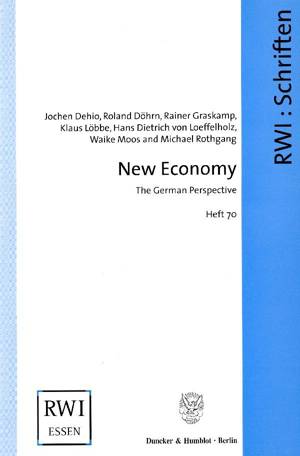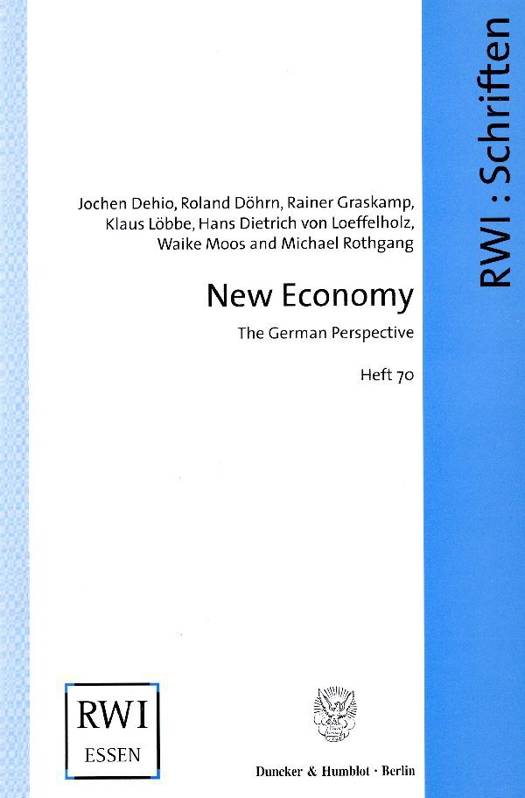
- Retrait gratuit dans votre magasin Club
- 7.000.000 titres dans notre catalogue
- Payer en toute sécurité
- Toujours un magasin près de chez vous
- Retrait gratuit dans votre magasin Club
- 7.000.0000 titres dans notre catalogue
- Payer en toute sécurité
- Toujours un magasin près de chez vous
New Economy
The German Perspective
Hans Dietrich Von Loeffelholz, Jochen Dehio, Klaus Lobbe, Michael Rothgang, Rainer Graskamp, Roland Dohrn, Waike Moos
78,95 €
+ 157 points
Description
For many observers the beginning of a dynamic economic and stock market upswing in the U.S. in the mid 1990s marked the start of a new era, the times of the new economy. This phenomenon has been under intense discussion ever since - both in the political arena as well as among scientists. Thereby the somewhat glamorous term new economy reflects the conviction held by its proponents that the use of new technologies will lead to a never ending acceleration of technological progress and economic welfare. The origins of this development date back a long time: More than 30 years ago, the starting point was the basic innovation digitilization. Production as well as application of information and communications technologies (ICT) are based on this principle. At the beginning of the seventies, the first microprocessor was produced. Some ten years later, the first personal computer was brought onto the market. The commercial use of the Internet has begun in the mid nineties. In view of the economic boom in the U.S. accompanying the introduction of the Internet, the question arises as to what extent the new economy actually has exerted lasting positive effects on productivity - not only in the United States, but also worldwide. Inspired by these developments, the Federal Ministry of Economics and Technology commissioned RWI, Essen, to study the driving forces of the new economy. In this report, the trends of the ICT sector and of the use of ICT products are analyzed with respect to the overall economic effects in Germany in comparison to the U.S. Further analyses were carried out regarding the intensity and effects of e-business. Finally, the influence of different methods of price measurement on productivity was analysed, since this is important for international comparisons of total factor productivity. The study culminates in a growth accounting calculation separating the contributions to economic growth by capital, labor, and technological progress.
Spécifications
Parties prenantes
- Auteur(s) :
- Editeur:
Contenu
- Nombre de pages :
- 174
- Langue:
- Anglais
- Collection :
- Tome:
- n° 70
Caractéristiques
- EAN:
- 9783428113279
- Date de parution :
- 07-11-03
- Format:
- Livre broché
- Format numérique:
- Trade paperback (VS)
- Dimensions :
- 165 mm x 239 mm
- Poids :
- 2939 g

Les avis
Nous publions uniquement les avis qui respectent les conditions requises. Consultez nos conditions pour les avis.






